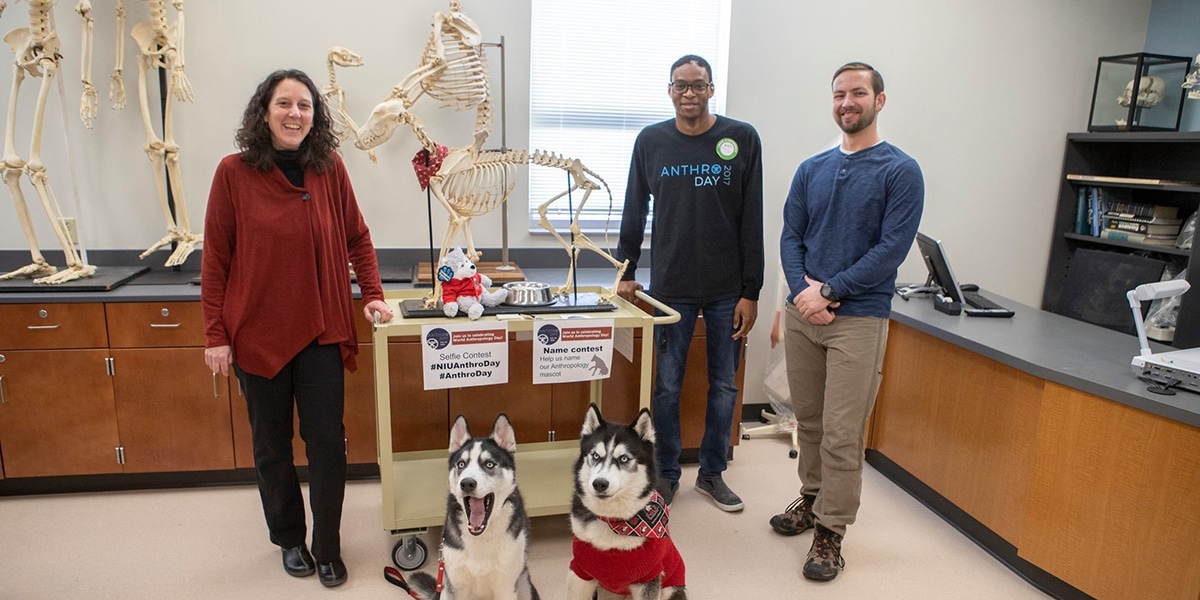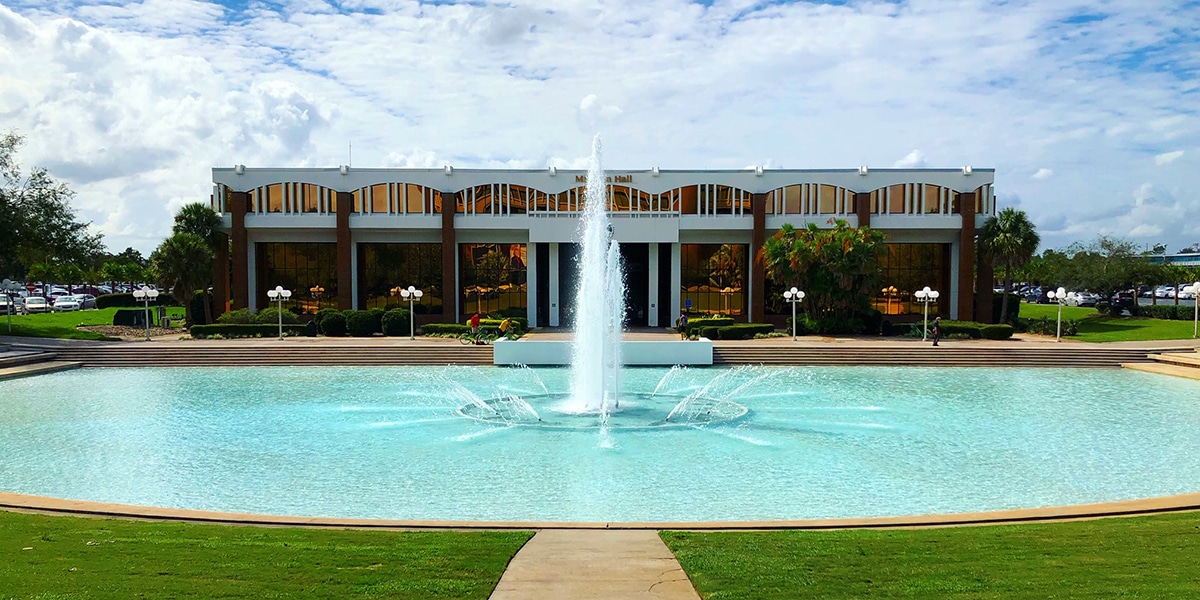Why Choose a Masters in Anthropology?
If you have a desire to learn about the diversity of human cultures, then a career in anthropology may be the right one for you. With a master’s program, you can get this degree in a year or two, moving on to work in more prominent roles in the field.
In anthropology, students can expect to work in a variety of fields such as history, language, and other cultural areas. Forensic anthropology and archaeology are also included in this program.
Many master’s programs in anthropology are only 30 credit hours in length, meaning that they’re quick to complete and also affordable for the average student.
Top 5 Masters in Anthropology Programs
| Rank | School | Location |
|---|---|---|
| 1 | University of Nevada | Las Vegas, Nevada |
| 2 | Eastern New Mexico University | Portales, New Mexico |
| 3 | East Carolina University | Greenville, North Carolina |
| 4 | Florida Atlantic University | Boca Raton, Florida |
| 5 | Northern Illinois University | DeKalb, Illinois |
Choosing a Masters in Anthropology
Anthropologists look forward to a median salary of $62,410 based on values in the industry in 2018. The highest-paid anthropologists can earn as much as $80,000 or more annually. Jobs in this field are expected to grow by 5% between 2019 and 2029, according to the Bureau of Labor Statistics.
The Bureau of Labor Statistics says this field is growing faster than others, which makes it a good choice for students looking to work during and after completing a master’s program.
The following is a list of the top 15 schools where students may obtain a master’s in anthropology. These are ranked from our top pick down.
The Best 15 Schools for a Masters in Anthropology
University of Nevada
Located in Las Vegas, the University of Nevada offers an excellent MA in anthropology. The school emphasizes fieldwork and lab processes. It also has an optional track in Archeological Heritage Management. The student-to-staff ratio is 20 to 1.
School Overview
Eastern New Mexico University
Eastern New Mexico University offers smaller class sizes with a student-to-teacher ratio of 17 to 1. Students in this program can study cultural resource management, Paleoindian studies, and zooarchaeology.
School Overview
East Carolina University
East Carolina University offers an MA in Anthropology with a thesis or non-thesis track. The student-to-teacher ratio is 18 to 1, and students can look forward to internships if they’re so inclined.
School Overview
Florida Atlantic University
Florida Atlantic University has a comprehensive master’s degree in anthropology available. This is a 30-credit-hour program and has a student-to-teacher ratio of 21 to 1.
School Overview
Northern Illinois University

The graduate faculty at Northern Illinois University specialize in a broad range of topics and geographical areas, including Andean archaeology, primate behavior and ecology, cognitive linguistics, the environment, nongovernmental organizations, food systems, Southeast Asia, Tonga, the Middle East, Madagascar, Bolivia the U.S. and Haiti. Graduate students have opportunities to work with faculty in these areas and conduct their own research in various parts of the world.
The program offers the opportunity to explore interdisciplinary connections and to pursue complementary opportunities at NIU, such as Southeast Asian language studies via the Center for Southeast Asian Studies, the GIS certificate offered by the Geography Department, as well as links to Biological Sciences, Geology and Environmental Geosciences, Environmental Studies, History and Sociology.
NIU offers a wide range of graduate courses and their students regularly present at regional, national and international conferences. Students are provided opportunities to engage in scholarly and social interactions with peers and professors at NIU and around the country. They also benefit and enjoy personalized mentoring support from dedicated and knowledgeable faculty.
School Overview
Western Washington University
Western Washington University has a student-to-teacher ratio of 18 to 1 and offers a master’s program in anthropology through its College of Humanities & Social Sciences and the Department of Anthropology. Some of the coursework includes intercultural education, research design and method, and global migration.
School Overview
Mississippi State University
Mississippi State University offers smaller class sizes with a ratio of 17-to-1, and it also offers a master’s in anthropology with specialties in applied cultural anthropology and applied archaeology. It is accredited by the Southern Association of Colleges and Schools Commission on Colleges.
School Overview
University of North Texas
The University of North Texas has a student-to-teacher ratio of 25 to 1 and has both an MS and MA track for a degree in anthropology. Some courses students take include ethnographic and qualitative methods, urban anthropology, and others.
School Overview
Georgia State University
Georgia State University offers an impressive MA in anthropology that has an optional concentration in museum anthropology. Students can also select to get a graduate certificate in ethnography. Some courses to take include archaeological methods, sociocultural anthropology, and applied anthropology.
School Overview
Brigham Young University – Provo
Located in Provo, Brigham Young University offers a master’s degree in anthropology through the Department of Family, Home, and Social Sciences. The program consists of 30 credit hours and has a student-to-faculty ratio of 20 to 1. The school is accredited by the Northwest Commission on College and Universities.
School Overview
San Diego State University
San Diego State University offers a master’s in anthropology. The student to faculty ratio is 27 to 1. The program offers core seminars in courses such as ethnology, biological anthropology, and linguistics.
School Overview
University of Central Florida

The Anthropology MA at the University of Central Florida offers a comprehensive four-field approach with faculty strengths in archaeological, cultural, biological, and public and applied anthropology. Required coursework includes Archaeological Theory and Methods, Seminars in Cultural and Biological anthropology, and Writing in Anthropology. Students choose electives from a wide range of courses based on their specializations that can include Medical Anthropology, Archaeology, Bioarchaeology, and Forensic Anthropology. Program methodological specializations include GIS, osteology, isotopes, archaeological field methods, digital anthropology, quantitative, qualitative, and ethnographic methods.
The anthropology faculty conduct research in many geographic areas including Argentina, Belize, Bolivia, Brazil, the Caribbean, Colombia, Croatia, Egypt, Guatemala, Ireland, Lithuania, Malta, Mexico, Peru, Philippines, Poland, Sudan, Turkey, and the United States. The department also has multiple research facilities on the Orlando campus that include the following: Lithic and Ceramic Analysis Archaeology Lab, Forensic and Skeletal Biology Lab, Paleoethnobotany Archaeology Lab, Bioarchaeological Sciences Lab, and the Interdisciplinary Geospatial Science Lab. Students may have the opportunity to conduct research projects in various countries or research facilities as part of their program.
School Overview
Kent State University
At Kent State University, students enjoy medium-sized classes of 20-to1 and can learn about anthropology from a holistic standpoint. The master’s program at Kent State requires a thesis for graduation.
School Overview
Washington State University
Washington State University offers a master’s in anthropology with small class sizes. The student-to-teacher ratio is just 15 to 1. The program focuses on historical ethnography, medical anthropology, and other forms. A thesis is required for graduation.
School Overview
Florida State University
At Florida State University, students enjoy courses in archaeology, cultural anthropology, and physical anthropology. A thesis and exam is required for graduation. Florida State University is accredited by the Southern Association of Colleges and Schools Commission on Colleges and is the host site of the Southeast Archaeological Center.
School Overview
Ranking Specifications
The rankings in this article are based on the overall enrollment in the school as well as the tuition costs for attending the school. Higher tuition rates reduced the school’s score, as did high enrollment levels. Every effort was made to include accurate information in this article, but please be advised that the list is subject to change and is not guaranteed.
Do you have questions about how your school was ranked? Do you want to have your school ranked on one of our lists? Reach out to our team. Contact us today, and we’ll be happy to speak with you about your program.


